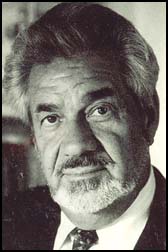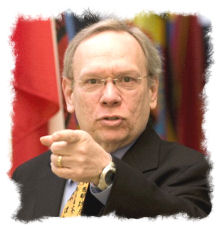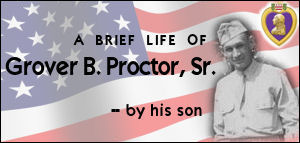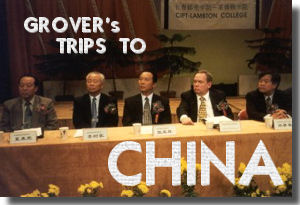 Plausible Denial: Was the CIA Involved in the Assassination of JFK? by Mark Lane. New York: Thunder's Mouth Press, 416 pp. $22.95, cloth.
Plausible Denial: Was the CIA Involved in the Assassination of JFK? by Mark Lane. New York: Thunder's Mouth Press, 416 pp. $22.95, cloth.
"Not another book on the Kennedy assassination." Undoubtedly, some will say that on seeing attorney Mark Lane's newest volume on the booksellers' stands. Some will turn away in anger, supposing it an unpatriotic response to governmental agencies who have already told us what happened, written by someone they believe is merely trying to enrich himself by peddling conspiratorial claptrap. Others will be offended by what they see as an indelicate affront to the Kennedy legacy and family. However, for those serious about the rational and logical discourse of unresolved historical questions, who are not afraid to be given answers that are at once disturbing, well reasoned, and imminently readable, Lane's book is a must. To describe the book using Rumpole of the Bailey's phrase "a rattling good yarn" is to say that it is as engrossing as a John le Carre or Len Deighton novel. But the spies Lane talks of here are not cold warriors defending the free world from the international communist conspiracy, but rather possible conspirators themselves in an American coup d'etat. Among the first and for a long time the best criticism of the Warren Commission's official version that lone nut Lee Harvey Oswald had killed the president, Lane's seminal first book Rush to Judgment literally cited chapter and verse to demonstrate that the Warren Report was, in his words, "a fraudulent document." In an interview given while he was in Dallas for a recent symposium on the Kennedy assassination, Lane told me that in those early days he did not immediately come to the conclusion that the CIA had killed Kennedy. "I did know, of course, that there were powerful forces involved in covering up the facts. I didn't know then, but I know now, that the Central Intelligence Agency reviewed my book Rush to Judgment before I got a copy of it, and what they said about it, and that they thought it was dangerous and had to be stopped." Plausible Denial is not intended to be a broad overview of the intricasies of the case and the reasons for disbelieving the official version. For that, one would be advised to turn to Anthony Summers' Conspiracy or other books currently on the market. Here, Lane tells the story of Liberty Lobby, a controversial Washington, DC political organization, whose newspaper the Spotlight had published an article in 1978 alledging that the CIA was going to identify Watergate burglar E. Howard Hunt as a conspirator in the JFK assassination. Hunt, having always denied the charge, sued both the organization and the author of the article, Victor Marchetti, a former CIA official whose book "The CIA and the Cult of Intelligence" was the first book in American history to be subjected to pre-publication censorship. When the original trial, which had netted a victory for Hunt and a settlement approaching three-quarters of a million dollars, was overturned on appeal, Lane agreed to take up the defense on the condition that he be allowed to turn the litigation into a courtroom examination of Hunt's (and the CIA's) true role in Dallas. The trial is the framework around which Lane builds the book's examination of what he sees as the CIA's role in both planning and executing the plot, and then in covering up the true facts. The story weaves its way through Lane's discovery in the mid-70s of evidence which to him proved CIA complicity, through his involvement with the Liberty Lobby case, and on to the trial and final verdict. Lane is very careful to tell his story in the order that it happened, so the surprise witness that crumbled Hunt's alibi doesn't really make an entrance until late in the book. Some will call it grandstanding; others, a rattling good yarn. In addition to the story, Lane gently provides the reader with a remarkably detailed yet painless primer on the American adjudication process of libel, a surprising and most enlightening benefit. While it's a matter of record, quietly disregarded by most news media at the time, that Lane won the case, the degree of his success in trying Hunt, in effect, for the murder of Kennedy only emerges in this book. Jury forewoman Leslie Armstrong offered this assessment of the trial: "Mr. Lane was asking us to do something very Along the way, Lane demonstrates not only that his skills as a trial attorney have only sharpened over the years, but also that his writing style is as urbane, witty and narrative as it is cool, analytical and precise. As he has since his days as self-styled "counsel for Lee Oswald," Lane continues to maintain Oswald's innocence in the assassination. Lane confirmed to me what Victor Marchetti had told me ten years ago concerning Oswald's call from the Dallas jail to the home of a former Army counterintelligence agent in Raleigh, North The best thing I can say about this book is that you will not be able to put it down, and in my view you shouldn't.
|
|
| PAGES & SITES OF INTEREST TO VISIT | |
| THESE ARE NOT PAID ADS. WE JUST SUGGEST YOU WILL LIKE THE SITES. | |
|
RETURN TO TOP |
| All content ©1995-2013. All rights reserved. |






